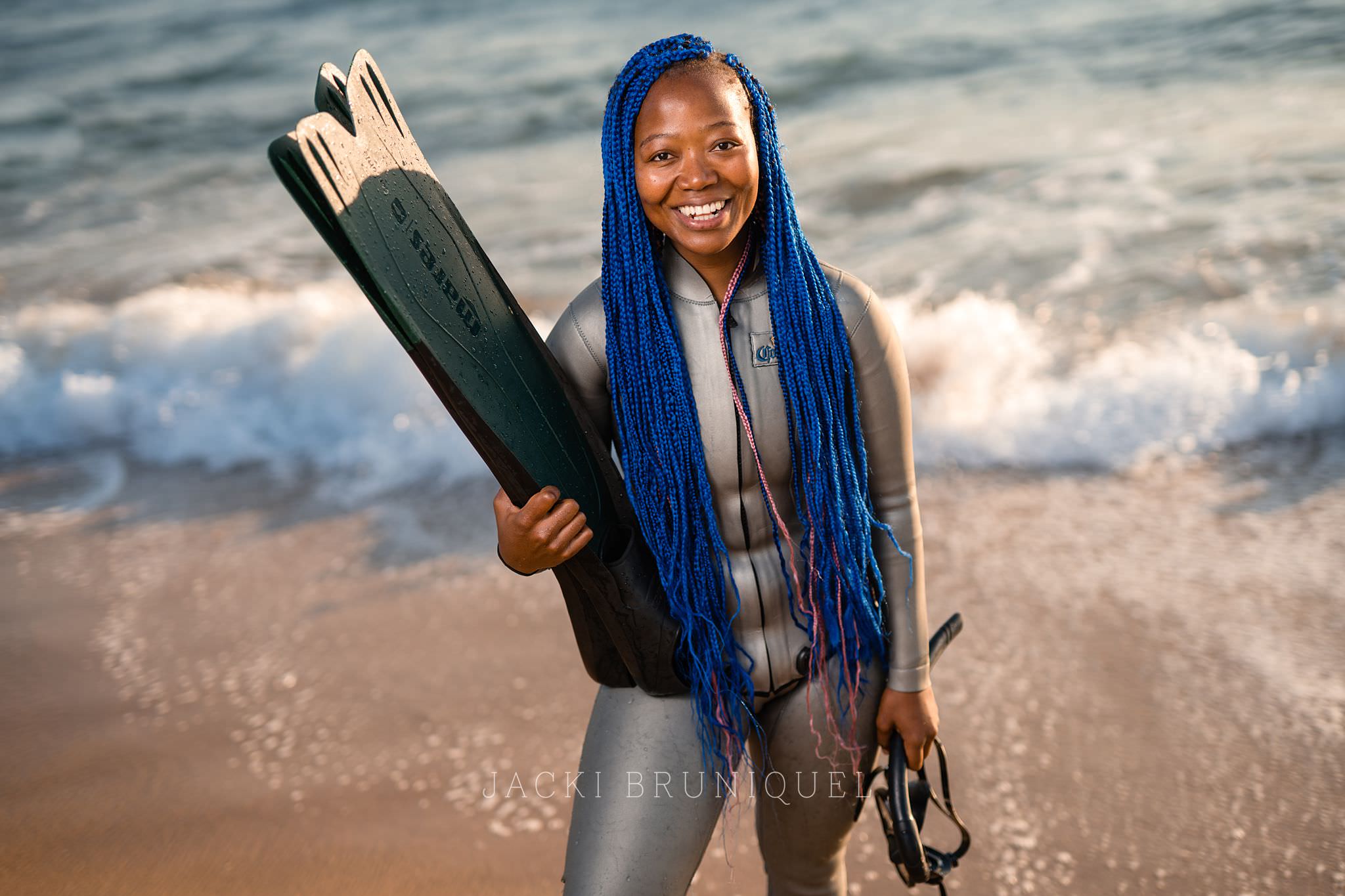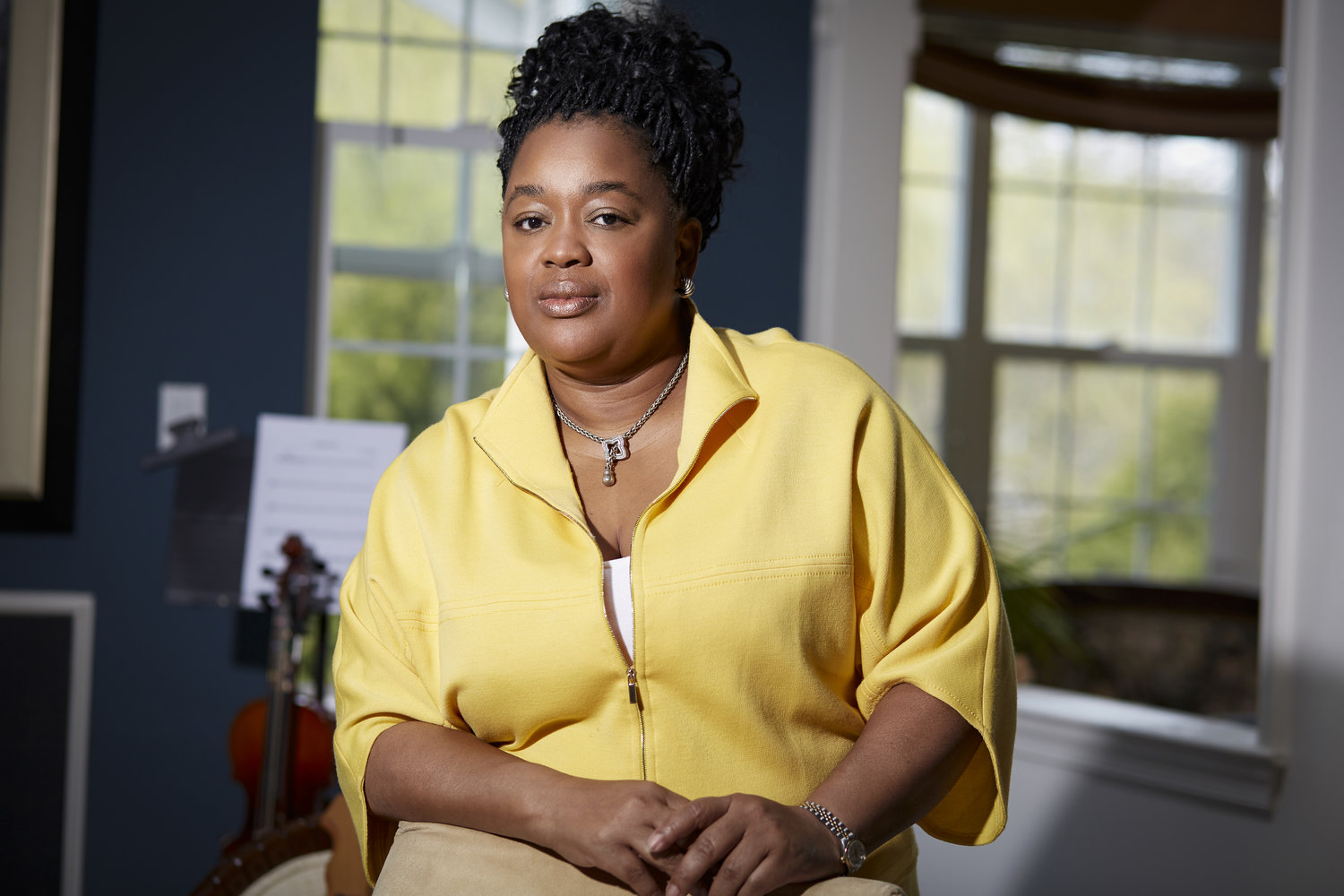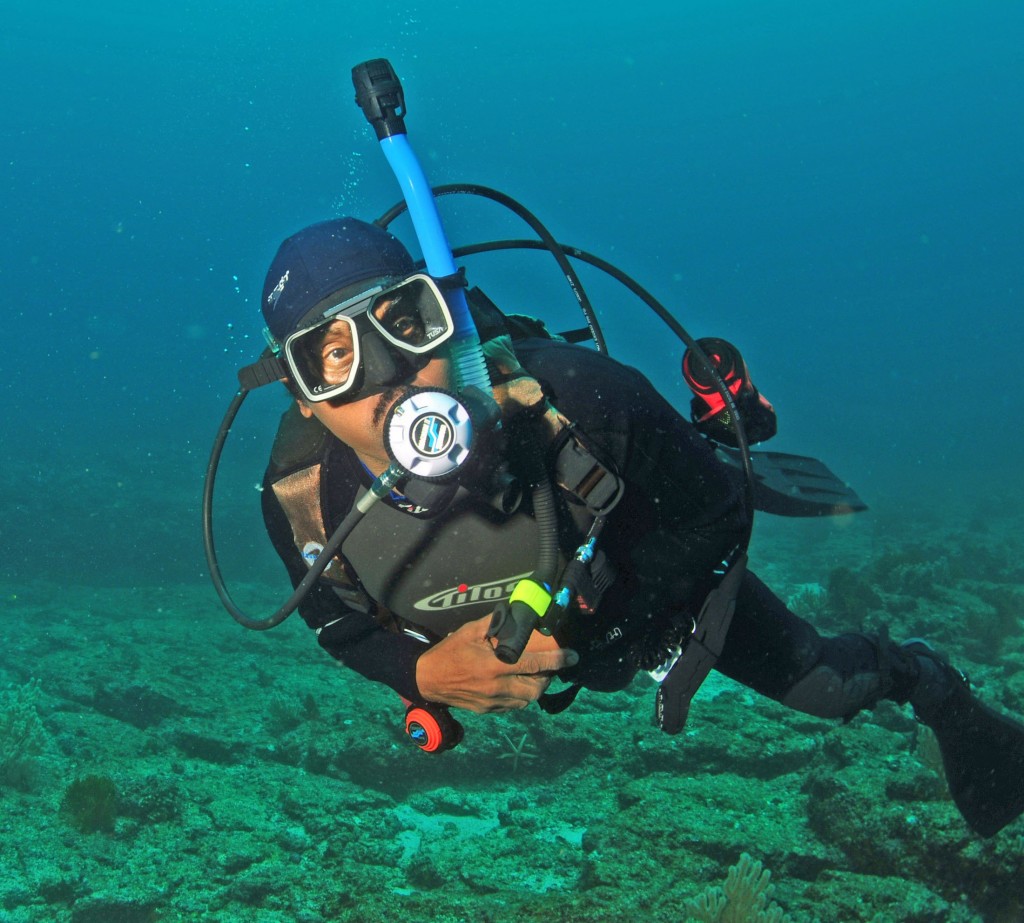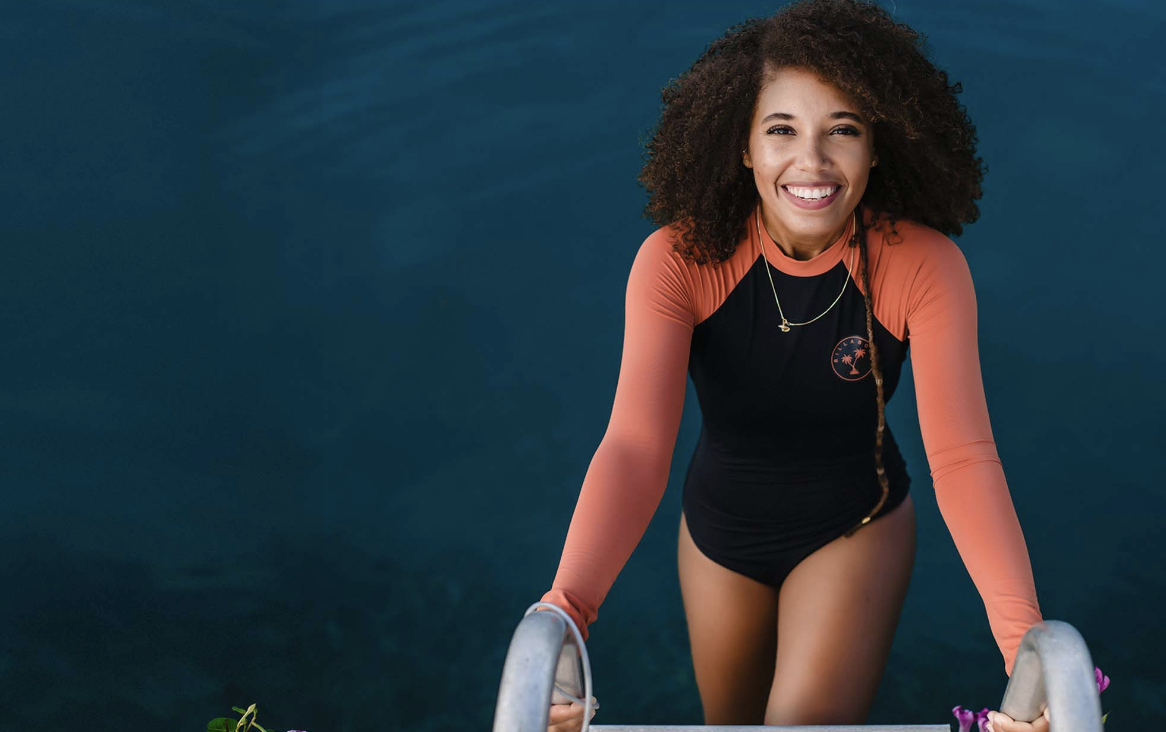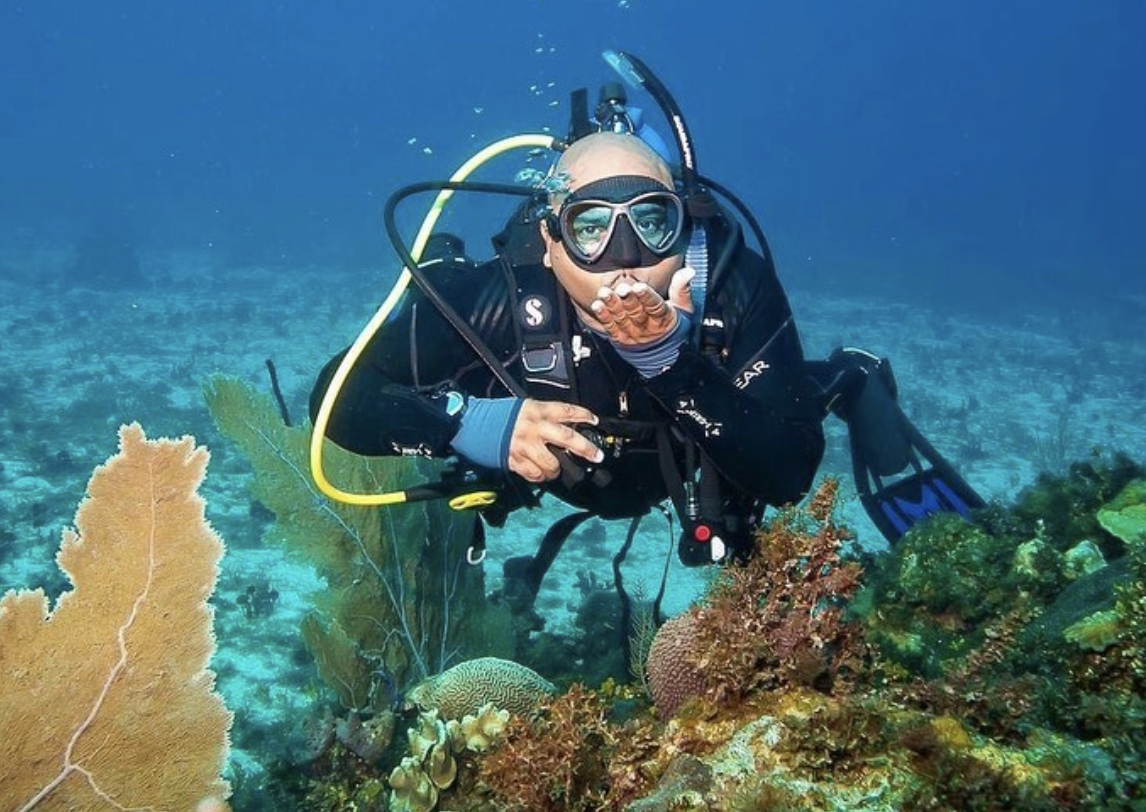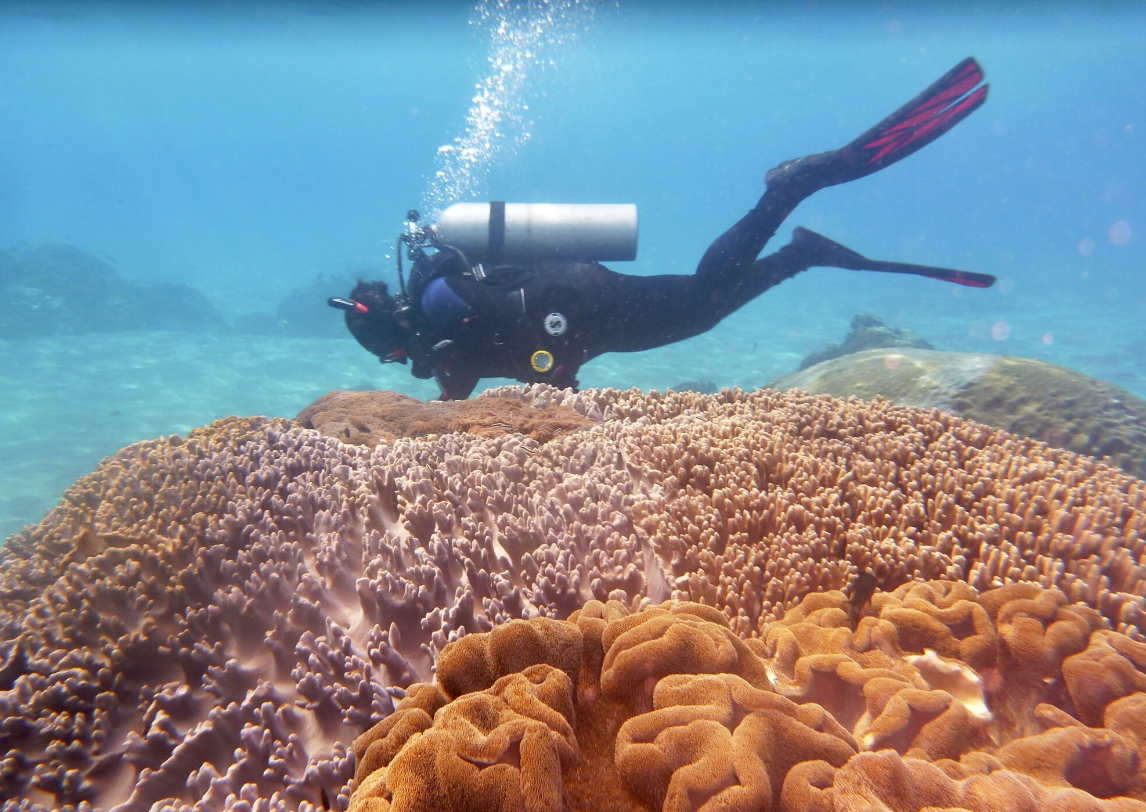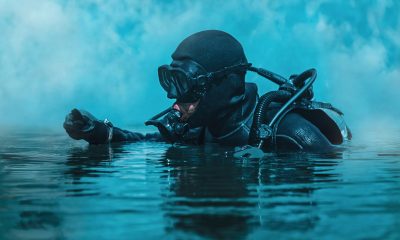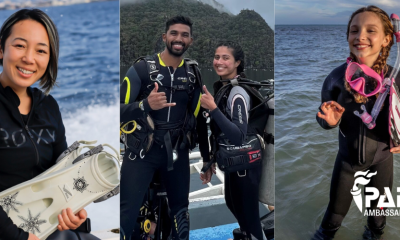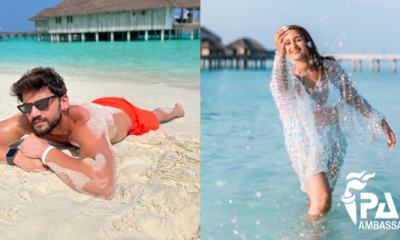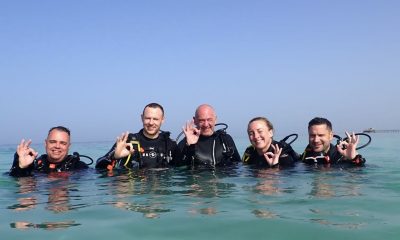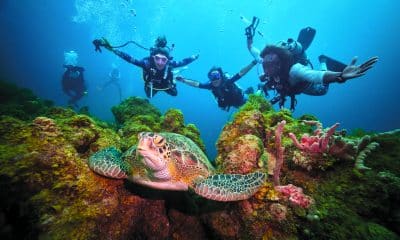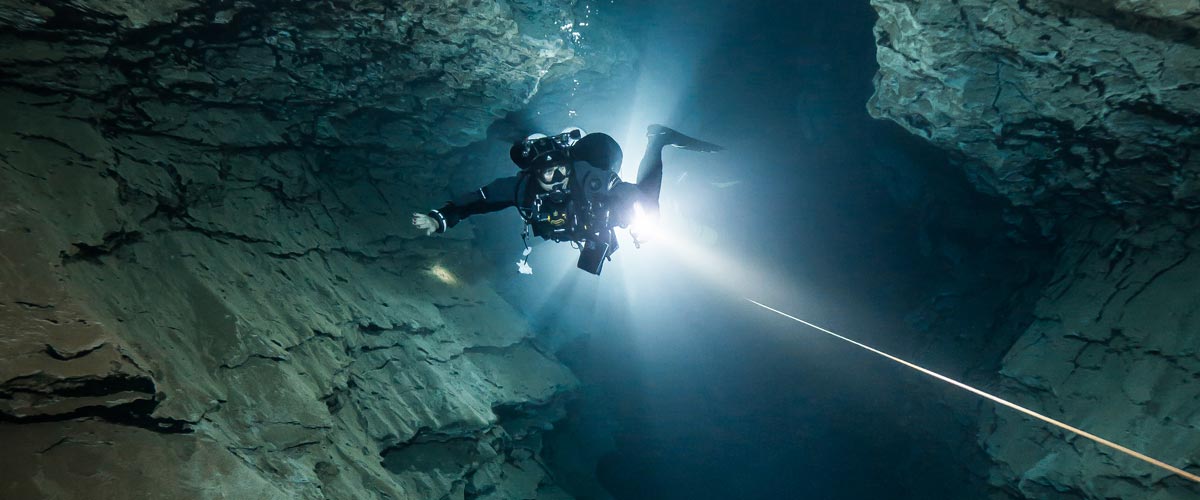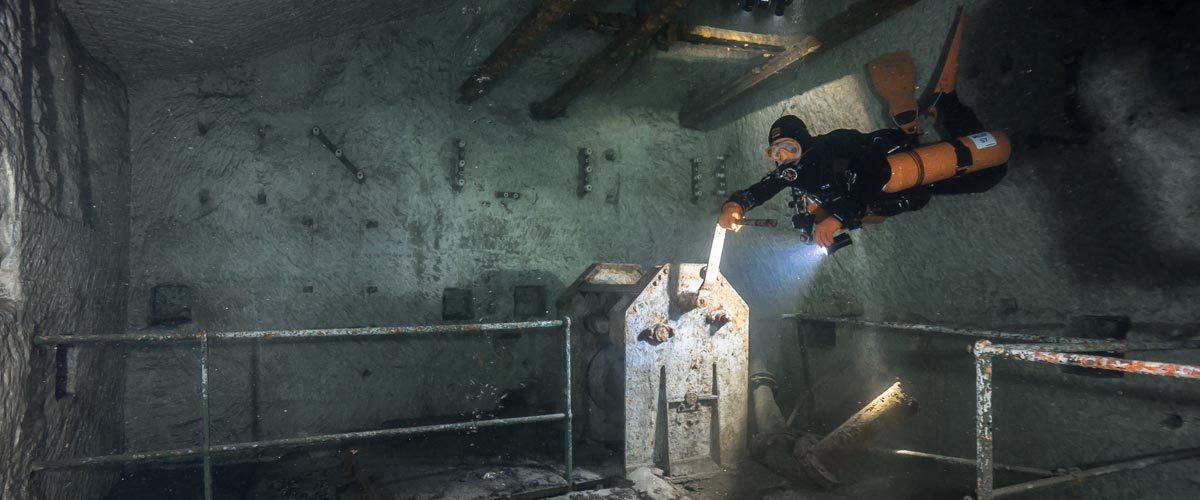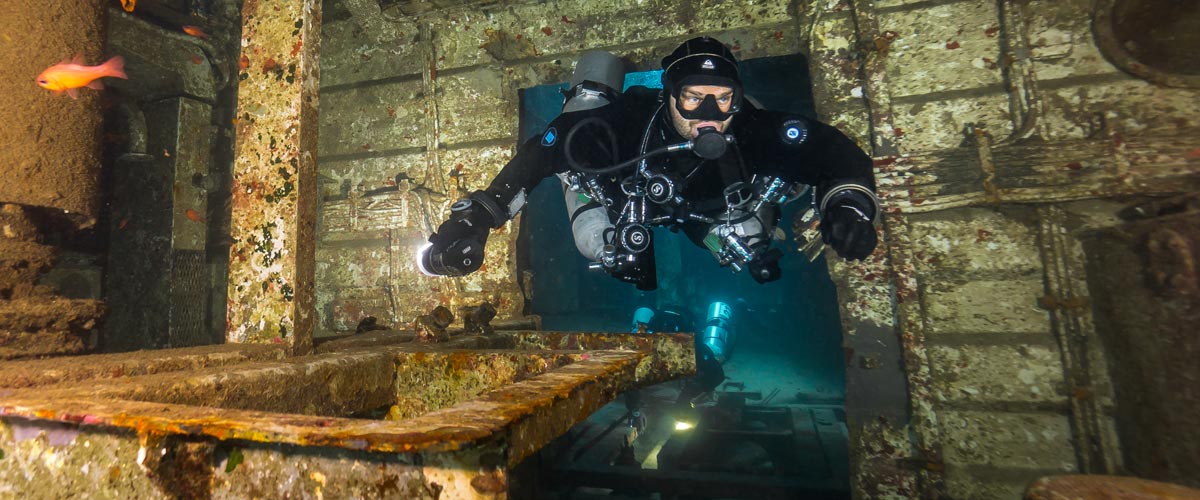Dive Training Blogs
Divers making the Oceans more diverse
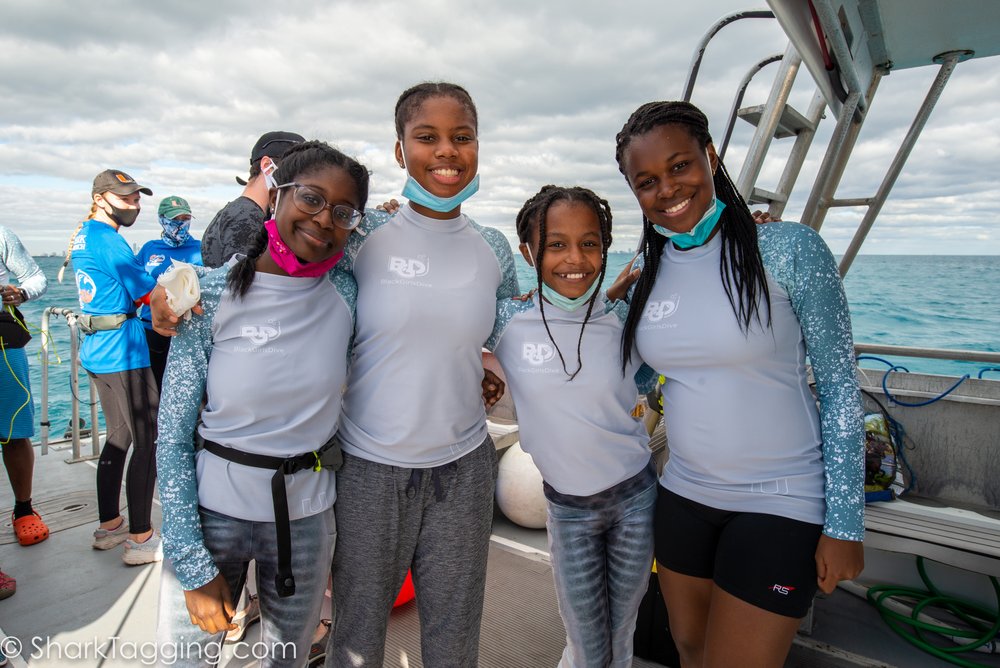
Arguably, diving is the most inclusive sport in the world. At the time of writing this, PADI professionals teach, lead and support diving in 185+ countries and territories, and by best estimate, more than 90% of people have access to dive instruction in a first and/or second language.
PADI is on a mission to create a billion torchbearers to unify for a collective purpose to create positive ocean change. Supporting this is PADI’s Pillars of Change and a collective effort in fostering diversity and inclusion in the dive industry and supporting local communities.
As PADI CEO and President Drew Richardson says:
“Diving is a unifying force that bridges cultures through a common passion, purpose and language. Our interpersonal contact and shared experiences promote understanding and reduce prejudice, making diving a unifying force across national and regional boundaries and differing values – something that the world badly needs”
PADI is committed to delving into diversity, including what it means to be black in the diving world, today – and every day. Several PADI AmbassaDivers and PADI Professionals guide us through these conversations – and are blazing a path for new explorers, scientists, advocates and ocean change makers.
From around the world, each has had a different experience breaking through barriers, challenging cultural “norms”, and paving a new path as a purpose-driven diver and ocean ambassador. Their stories both inspire us, regardless of our race, and help us understand and reconcile with painful truths from the past. Additionally, they offer suggestions on how we can support BIPOC and underrepresented communities.
7 PADI Divers making the Oceans more inclusive
1. The Black Mermaid: Zandile Ndhlovu
Zandile Ndhlovu is PADI Freediving Instructor, PADI Mermaid and the founder of The Black Mermaid Foundation, an organization seeking to create diverse representation in the ocean arena. Zandile’s work centers around creating the first encounter that exposes the youth to the ocean. As an ocean conservationist, diversity and inclusion specialist, and avid speaker and storyteller, she uses these skills to advocate for diversely represented and inclusive oceans while working to reshape incomplete narratives.
“I’ve always loved nature… and have journeyed her differently at different times. When I found Freediving, I knew I wanted to go all the way with it! Black Mermaid is where I found solace in this journey. Being the first Black African PADI Instructor in South Africa, I’m determined to share my passion for the ocean with the world and explore how our deepest beliefs about the deep ocean can coexist with Freediving and perhaps even bring us closer to the knowledge of self.
“I’m an advocate of wonder, exploration and awe – beginning with self. I’ve always dreamt of making a positive impact in the lives of others, and am made happiest when inspiring, motivating and challenging people from all different backgrounds by simply being. With a strategic approach combined with an outside-the-box perspective, Black Mermaid helps people break through barriers and challenges, overcome doubts and take a large stride towards achieving their goals.”
2. Using Education to Break Barriers: Dr. Nevada Winrow
Dr.Nevada Winrow is a Johns Hopkins School of Medicine-trained pediatric neuropsychologist, PADI Master Scuba Diver, and founder of Black Girls Dive Foundation. Her foundation runs a program that helps underserved and under-resourced girls learn to swim, scuba dive and participate in hands-on science, technology, engineering and math (STEM) activities.
Participants in Dr. Winrow’s program can earn PADI® Open Water Diver certifications during their first year. With each new semester, the girls can earn additional certifications such as Advanced Open Water and PADI Specialties. The goal is for each participant to earn their PADI Master Scuba Diver rating by the end of their time in the program – as well as having an educational foundation that gives them both high school and college credits.
“The purpose of our organization is to help young women develop their STEM identify, be nerdy and feel comfortable about it,” said Winrow. “We tell the girls, you can pursue any career you want, but we’re going to teach you how to think like a scientist.”
3. The Godfather of Black Scuba Diving: Dr Albert Jose Jones
Dr Albert José Jones is considered the godfather of Black scuba diving in the U.S. He founded the country’s oldest Black diving club, Underwater Adventure Seekers in Washington, D.C., in 1959, and co-founded the National Association of Black Scuba Divers, in 1991. Earning his certification in a Howard University Pool, he changed scuba diving forever. A diver, explorer and scientist, he opened the door for so many other black divers to explore the ocean as well as their own history.
After 51 years as an esteemed PADI Professional, Dr Albert Jose Jones has an impressive resume with accomplishments that many divers only dream of achieving. A lifelong marine educator and leader protecting our ocean, Dr Jones is a PADI Master Scuba Instructor with over 6,000 dives logged in 50 countries around the world. He has taught marine biology for over 25 years at the University of the District of Colombia and is a U.S Army Purple Heart Veteran, having learned diving while training in the army. He is also responsible for certifying over 2,000 divers, the majority of whom were children at the time.
When Dr Jones reflects back at his first breaths beneath the surface, he smiles and fondly recalls it being one of the most exciting times of his life. “I’ve always had a connection to the water and been a competent swimmer. So putting a tank on my back and getting to stay under for longer was an extremely powerful experience,” says Dr Jones.
Dr Jones was announced as the recipient of the 2022 NOGI Distinguished Service Award from the Academy of Underwater Arts and Sciences, an “oscar worthy” accolade that he says is one of the biggest honors of his entire career.
But topping the award, he says, is the fulfillment he gets teaching children in his community the art of confidence through scuba diving.
4. Diving to Research the Past and Our Future: Alannah Vellecot
Alannah Vellecot is a PADI AmbassaDiver from the Bahamas who is also a marine ecologist, science communicator and ocean advocate with 12 years of experience working in marine research, conservation and education. She’s led a variety of marine research and outreach projects that include sharks, conch, reef health, shipwreck mapping, and blue hole ethnography. She was also the principal diver in a 6-part documentary, ‘Enslaved’ starring Samuel L Jackson and Afua Hirsch, telling the untold stories of the Trans-Atlantic Slave Trade by diving shipwrecked slave ships around the world.
“I want to be a reflection for women and girls of color who dare to follow their passion and to remind the world that the ocean is their home too, ” she says.
5. Working for the Animals: Dr.Dayne Buddo
Dr. Dayne Buddo, born and raised in Jamaica grew up with a fear of the ocean – like so many others in his community. He overcame a fear of the ocean at age 20 to follow his passion.
Buddo went on to earn his PhD in Marine Sciences and is proud of all his accomplishments, especially being invited to address the UN on Ocean Conservation. He has become an extremely accomplished researcher, scientist and ocean change maker. He is a certified PADI Master Scuba Instructor who serves on the boards of The Ocean Foundation, Fisheries Development Management Fund, National Conservation Trust Fund Grant Committee and continues to support several delegations to major United Nations Conferences on climate change and ocean conservation. He is currently the Director of External Engagement at the Georgia Aquarium, where he is responsible for deepening Georgia Aquarium’s service ties to the community at the local, state, national and international levels to further their mission of ocean conservation. He adores working with local communities and seeing that spark on other children’s faces, when they realize they too belong to the ocean.
He also uses marine science to protect biodiversity on our blue planet and has designed extremely successful programs including working with local fishermen in Jamaica to address invasive species and overfishing.
“There is no point in science if it is not applied to solving problems, or better yet, avoiding issues that would negatively affect ocean health. Having everyone involved in solving a problem, especially local communities which are mostly impacted, is the key to the success.
“We are all connected ecologically to the ocean, so we must be connected in solving the issues… so get involved. Science does not only belong to scientists, as citizens who simply love the ocean, you can also do your part. There is no shortage of need, only a shortage of hands, so dive with a purpose in mind.”
6. Diversity Advocate for Diving: Dr. Tiara Moore
Dr. Tiara Moore is the founder of Black in Marine Science (BIMS), which she started after she realized she was the only black person on her marine science teams and was determined to change the stereotypes of who can dive.
“Programs like BIMS are also critical to help heal the “history and trauma of black people and water,” Moore shares. “Black people don’t want to jump into the water with millions of our ancestors literally at the bottom of the ocean… It’s like we’re to blame that we’re not there, but there are so many barriers and so much trauma”
Dr. Moore’s BIMS program is aimed at getting more PADI certified black divers and helping her community feel more confident and connected in the water.
7. Telling Stories of the Ocean: Xochitl Clare
Xochitl Clare is a PADI AmbassaDiver, marine biologist and performing artist who is dedicated to telling stories of the environment to inspire others in her community to connect with the ocean. As a first generation Latina Afriacan American, she uses her culture’s deep roots to storyrtelling to inspire aquatic dreams through books and media. As an equally accomplished ballroom daner, Xochitl is known as the dancing biologist.
“This work [of increasing diversity in diving] allows us to meet our history with the sea firsthand to contend with the past—to then charter a new future for African American communities in generations to come.”
Read more on the PADI Blog at HERE.
Blogs
Intro to Tech: What is it about?
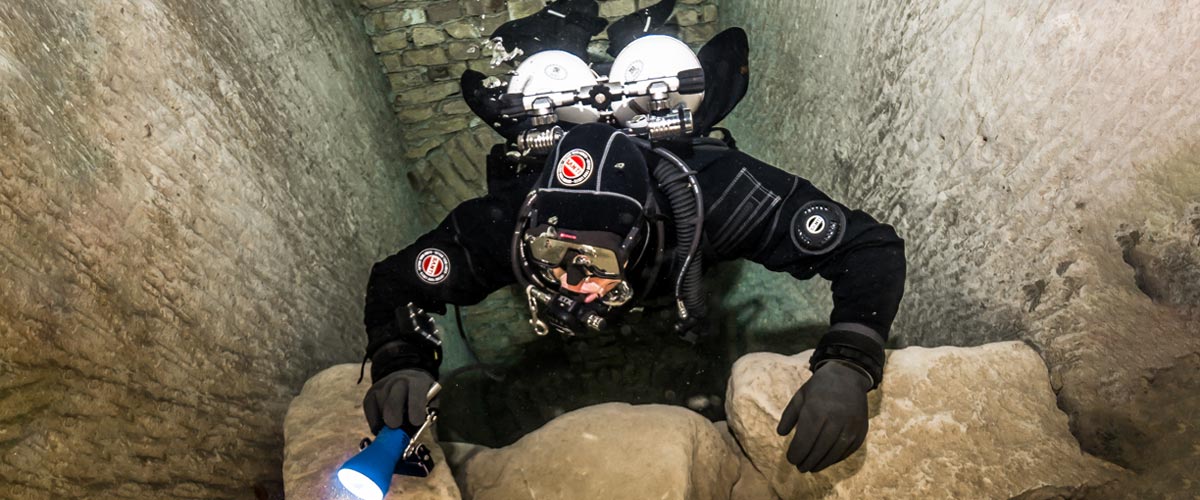
Article by José Pablo Mir
Pictures by Cezary Abramowski
The world of technical diving is exciting. It opens the door to new sites, depths, and bottom times. More importantly, it opens our minds to a new way of planning, facing, and experiencing dives, even those not purely technical.
Becoming a technical diver is a process, and like in other aspects of life, we should find the proper entry point that suits us best based on our knowledge and experience. The Introduction to Technical Diving course from TDI -the world’s largest and most recognized technical diving teaching organization- is the best option for divers who have yet to gain experience in the fundamental aspects of this new practice. The course’s content and its embrace of new techniques and technologies make it possible to acquire a solid foundation to learn and gain experience in this practice properly.
Becoming a technical diver is not something that happens overnight, whether deciding to become one or receiving a certification card stating we are now technical divers. It is a slow process extending farther away than any introductory course. It requires effort and dedication. But it will bring us satisfaction from day one -or two.
It is a matter of mentality
First, we must understand and accept that technical diving, involving greater depths, longer bottom times, exotic gases, virtual or real ceilings, and more, comes with higher levels of risk than the sport diving we have been practicing until now.
Although this discussion usually starts with a warning about risks, as I’ve done in the previous sentence, our practice is not a game of chance.
Technical diving is a rational activity that requires maturity and good judgment, and we will put everything into ensuring that each dive is a successful one -meaning we return from it safe and sound. With this understanding, we will strive to establish a mental attitude more aligned with our practice and its realities.
This new “technical diver” mindset we will develop will lead us to be more cautious in our executions, more analytical in our plans, more rational in our strategies, and more detailed in our procedures.
Experience will keep teaching us to know ourselves better, to keep our anxiety and other emotions under control, and to manage our impulses. Over time, our senses will sharpen, and we will be more attentive to the particulars of the situation we find ourselves in.
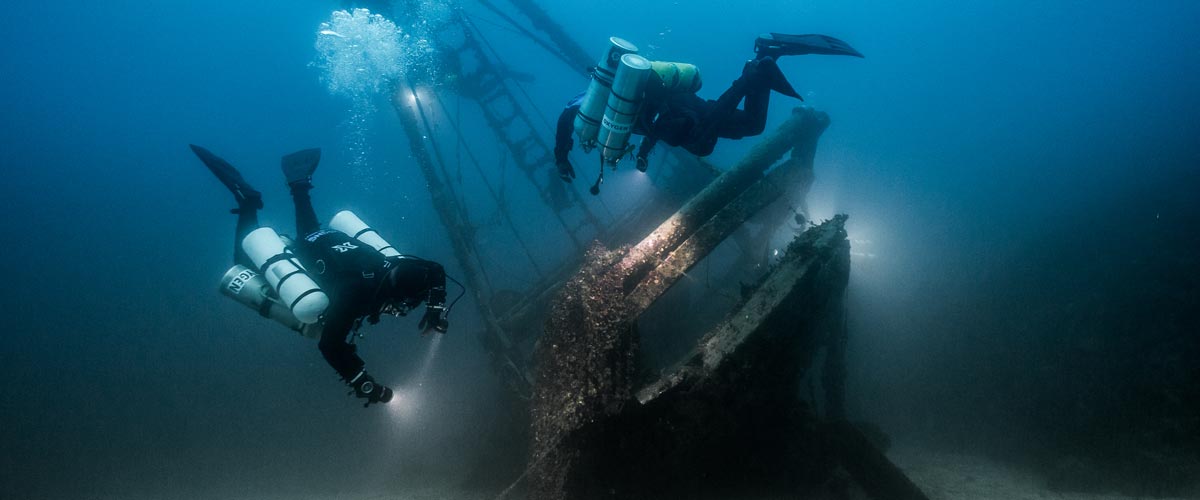
Strategies and procedures
Our strategies, those broad guiding lines tracing the path to follow, from how to approach planning to where, with what, and how we are willing to get there, will be more specific and more practical. Not because they magically become so, but because we will consciously and deliberately frame them that way.
We will establish clear, concise, and realistic procedures. Not only for the undesirable situations that may present themselves but also for those that are part of our dive objectives.
Even though, as technical divers, we often use equipment different from what we were previously accustomed to, it is essential to note that the gear does not make the diver. In a way, we could consider such equipment as the necessary tools to implement what our goal seeks to achieve, according to our strategies and procedures.
Technique plays an important role
We must put our greatest effort into learning and perfecting the different techniques we will be acquiring. Buoyancy, trim, propulsion, cylinder handling, deploying DSMBs and lift bags, valve drills, and more are essential skills we must begin to master to progress in our art. What we cannot do, when we need to do it, can harm us.
Our techniques must be effective and achieve the purpose for which they were devised. But they must also be efficient and require the least resources possible, including the time they take and the effort they demand. Effectiveness and efficiency will prevail over beauty and other considerations that may come to mind, although none of them should be mutually exclusive. A technique executed efficiently and effectively tends to have an inherent beauty.
Refining techniques is a lifelong mission. Some of them will be easy to master from the go; others, on the other hand, will be our life mission and will require many repetitions just to resemble the idea we have in mind of how they should be executed.
We must consider the environment
Our learning, the needs and musts of the practice we engage in, the experience we gradually gain, our strategies and procedures, and even our equipment and tools change with the environment.
Diving in the ocean, everything about us must be suitable for ocean dives. Conditions there rarely emulate those found in a pool, lake, or river. Variable winds and currents, greater depths, visibility conditions, other divers with uncertain skills around us, marine life, maritime traffic, distance from the coast, and many other factors add complexity and uncertainty.
It is never necessary to master the pool on the first day, but planning and aspiring to gradually cope with the ocean’s conditions is essential.
The cost of good training
We are aware that our resources are often scarce in relation to the possibilities of use we could give them if they were not. To a greater or lesser extent, we are part of the economic reality in which we are embedded.
Fortunately, the cost of good technical diver training is not an entry barrier. Comparing training and equipment costs, we see that the former are generally lower. Yes, lower cost for personalized service, essential to our future
performance and safety, than for a series of mass-produced products that are mere, albeit necessary, tools for an end.
The value of good training
The value of the training we received encompasses a range of characteristics, from emotional and methodological to technical and technological. TDI and its Introduction to Technical Diving course offer a deep and modern approach, with a teaching strategy that aims to create thinking divers, not merely obedient ones.
As technical divers, our knowledge is our primary tool. In this type of activity, what we don’t know can harm us.
Is this course optional?
Unfortunately, the fact that this Introduction to Technical Diving course is not a prerequisite for any subsequent training is an invitation to consider it optional. And we all know what usually happens to “optional” under budget constraints.
However, this course should be seen as optional only by those divers who are somehow familiar with the use of technical equipment, who have a mindset more in line with the requirements of this type of diving, who plan and execute the dives the proper “technical” way, who know their gas consumption rate, who are not intimidated by non-decompression tables, who feel comfortable using their dive computers, and know the techniques and have at least an acceptable level of buoyancy, positioning, and propulsion. Those can go straight to a more advanced training course, such as TDI’s Advanced Nitrox.
We must ask ourselves whether or not we are in that group.
Remember our goal: to have fun
Recreational diving is our passion. Jumping into the water carrying heavy equipment and having properly dotted our I’s and crossed our T’s have only one ultimate goal: fun. This is the activity we have chosen as a hobby. We must enjoy it; it must give us pleasure and make us vibrate.
Having a good time is not optional!
Blogs
Four opportunities to go pro in 2024 with Dive Friends Bonaire
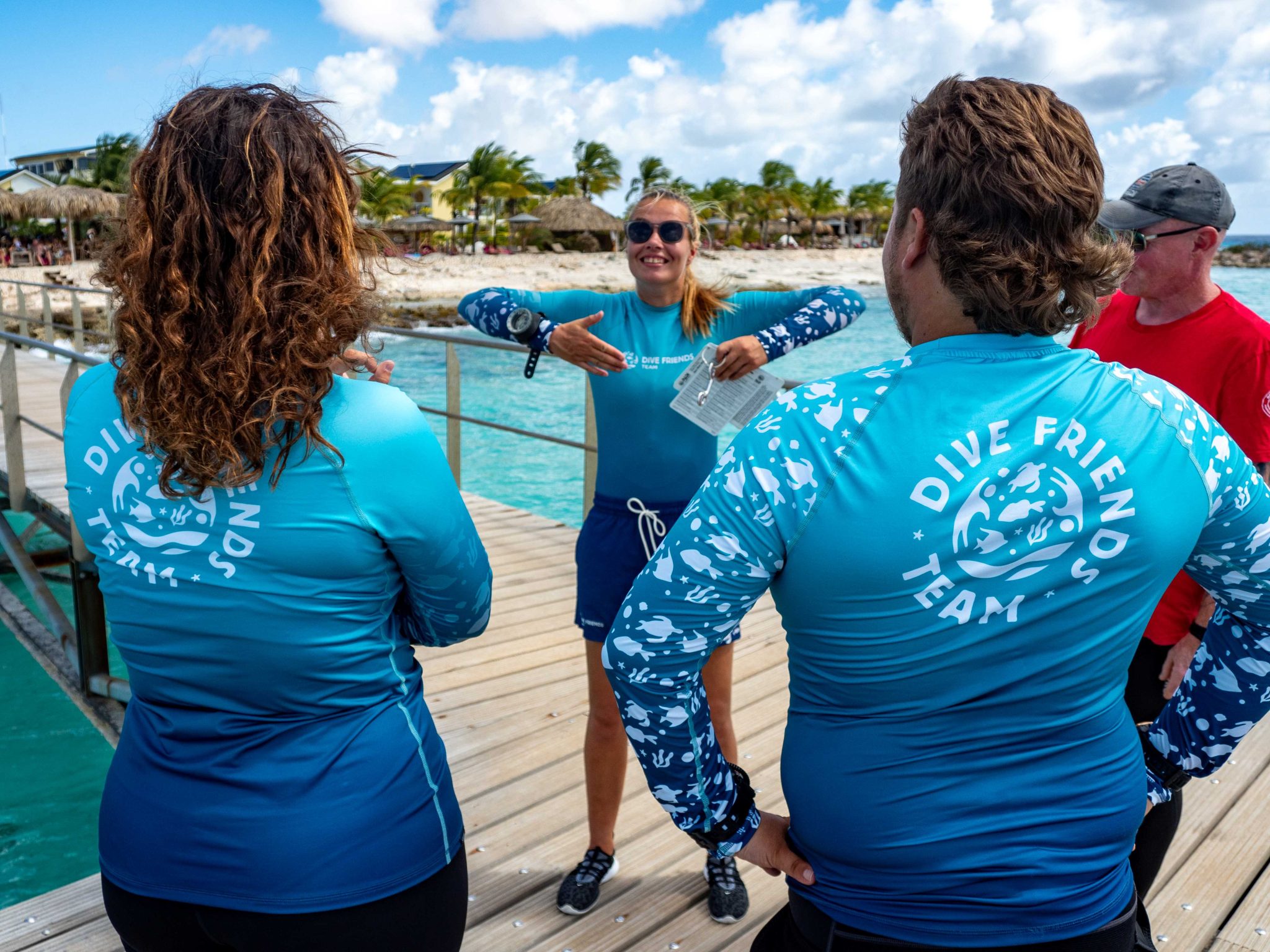
Dive Friends teaches the Instructor Development Course (IDC) several times a year to students who are eager to share their passion for diving with the world.
Dive Friends is known for the personal approach throughout the course. Their in-house course director will lead the students through every essential step, mentoring them to achieve their fullest potential as a dive instructor.
Applications for the following IDC start dates are now open:
- 12 April
- 5 July,
- 20 September
- 29 November
Partnership with Casita Palma
If the student opts for the IDC-Deluxe or IDC-Supreme package, their accommodation will be arranged for them at Casita Palma. This small and quiet resort is within walking distance from Dive Friends Bonaire’s main dive shop location and has everything you need to relax after an intense day of IDC training. Breakfast is included, so the student will always be fuelled and ready for their day.
Contact Dive Friends Bonaire’s Course Director Eddy for more information: coursedirector@divefriendsbonaire.com.
-

 News3 months ago
News3 months agoHone your underwater photography skills with Alphamarine Photography at Red Sea Diving Safari in March
-

 News3 months ago
News3 months agoCapturing Critters in Lembeh Underwater Photography Workshop 2024: Event Roundup
-

 Marine Life & Conservation Blogs3 months ago
Marine Life & Conservation Blogs3 months agoCreature Feature: Swell Sharks
-

 Blogs2 months ago
Blogs2 months agoMurex Resorts: Passport to Paradise!
-

 Blogs2 months ago
Blogs2 months agoDiver Discovering Whale Skeletons Beneath Ice Judged World’s Best Underwater Photograph
-

 Marine Life & Conservation2 months ago
Marine Life & Conservation2 months agoSave the Manatee Club launches brand new webcams at Silver Springs State Park, Florida
-

 Gear Reviews3 months ago
Gear Reviews3 months agoGear Review: Oceanic+ Dive Housing for iPhone
-

 Gear Reviews2 weeks ago
Gear Reviews2 weeks agoGEAR REVIEW – Revolutionising Diving Comfort: The Sharkskin T2 Chillproof Suit


